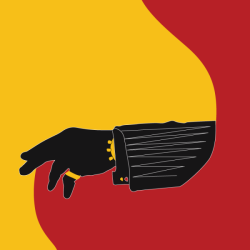
Did a Putin ally evade sanctions to pay private school fees?
A striking characteristic of Russian officials has long been how they combine passionate opposition to all the West professes to stand for with a marked willingness to invest, live, educate their children, party, and litigate in the West. And that brings us to Dmitry Ovsyannikov (there’ll be more on the elaborate spelling of his name in a bit), who was appointed governor of the city of Sevastopol by Vladimir Putin in 2016.
Sevastopol is the largest city on the Crimean peninsula, and was stolen from Ukraine by Putin in 2014 on the grounds that it had once belonged to Russia. “It was only when Crimea ended up as part of a different country,” Putin told the State Duma over a decade ago as justification for the annexation of Crimea, part 1 of the full-scale invasion of Ukraine in 2022, “that Russia realised that it was not simply robbed, it was plundered.” Most Western countries do not accept this logic, and have tried to punish people involved, which is why Ovsyannikov was sanctioned by the European Union, the United States, and the United Kingdom.
WESTWARD BOUND
Ovsyannikov left Crimea in 2019 for a position in Moscow, but his political career came to an abrupt end after a scandal at a regional airport. He then did that thing Russian officials do and headed to Britain. In 2023, he moved into his brother’s house in London, where his wife and children were already living and attending private school.
Private schools, however, have to be paid for, and prosecutors say that arranging those payments was tantamount to circumventing the UK’s sanctions, so he was charged along with his wife and brother, and this month they went on trial. The alleged wrongdoing is fairly small-scale, but it’s an important test case. We have a few weeks to wait for an outcome, but there are some interesting points to draw out from it already.
The first is about spelling. If you’re trying to avoid notice as a Russian (or a representative of any other nation which uses a different alphabet to ours), it’s an entry-level stratagem to play around with transliteration. It’s noticeable that in the court documents, he uses a different version of his name — Dmitrii Ovsiannikov – to that favoured by the Kremlin in the good old days, which is a switch between two common transliteration systems. His brother, meanwhile, spells his surname Owsjanikow, which uses yet another. I’m hoping there’s a third sibling, who’s gone all pre-revolutionary with Ovsiannikoff.
The second is about his citizenship. Ovsyannikov left Russia for Turkey in August 2022, which many Russians did after Putin invaded Ukraine, though admittedly most of them had not been senior officials in the occupying administration. He then applied for a British passport, which he obtained early the next year.
Apparently Ovsyannikov’s father was born in Bradford, in the north of England, in 1950. How did a Yorkshire lad hook up with a Soviet lady at the height of the Cold War? Did their eyes meet over a discussion of production quotas? If there are any authors of “socialist realist romance” among my readers, this could be your time to shine. Ovsyannikov himself is 48, so he must have been born in 1976 or 1977.
The third and most important thing about his case is whether he should still have been subject to sanctions at all. The U.K. may have continued to sanction Ovsyannikov, but in 2023 he challenged his EU designation and was removed from the bloc’s sanctions list on the grounds that he was no longer in a position of power or responsibility in Russia. Some may think that’s a weak reason, but I am inclined to think sanctions lists should be adapted if people have ceased the offending behaviour. Sanctions are a foreign policy tool, not a law enforcement instrument, and if the aim of the policy has been achieved, they should be cancelled.
There are lots of oligarchs and officials who would be willing to do quite a lot to get off the sanctions list, much of which would severely inconvenience Putin. It may feel icky, but I think our governments should be open to such deals. The point of all this is to undermine the Kremlin after all.
AND IT’S STILL ALL ABOUT THE BENJAMINS
This is not to deny that it does indeed feel icky to see sanctioned individuals try and evade those sanctions to buy Mercedes SUVs, as Ovsyannikov did. He used his brother as a proxy to buy the car. It reminded me of company owners who nominate proxies offshore to hide the real ownership structure. Since 2016, companies in the U.K. have been obliged to name a “person of significant control”. The idea of the law was to stop people hiding behind opaque shell companies to commit financial crime, but is anyone enforcing it?
Apparently not, since lawyer Dan Neidle has been able to publish a map with the location of 65,000 foreign companies that own U.K. entities, none of which are declaring who is in control of their operations. You can search on the map yourself. There are five companies in the Falkland Islands, for example, and there’s even one in American Samoa: are these remote jurisdictions making late bids to become offshore tax havens?
Just as I was thinking about the efforts of Companies House to rein in fraud, I was still thinking about the use of cash money by launderers from last week. I was reading this article, and I was struck by the claim that the US aerospace sector is due to export $125 billion this year, making it the country’s second most successful exporting industry.
In 2023, the Bureau of Engraving and Printing produced 1,326,976,000 $100 bills. That’s not all profit, because each bill costs 9.4 cents to print, and there’s some dispute about quite how many of those go abroad, but serious estimates range from 80 percent to 70 percent. Once you’ve done the sums, you end up with profits from $100-bill exports in 2023 of somewhere between $92.8 and $106.1 billion.
We don’t have the figures for 2024 yet, but the Federal Reserve said it would be ordering between $155.8 and $160.6 billion worth of $100 bills, which would yield profits of somewhere between $109.0 and $128.4 billion.
Look at that number again: at the top end of the range, that would nudge aerospace into third place, and establish the $100-bill-printing industry as America’s second most successful exporter. Even at the bottom end, it would be fourth, ahead of brand name pharmaceutical manufacturing ($103.3 billion), and quite a lot bigger than natural gas liquid processing ($62.9 billion). Who says the public sector can’t contribute to the economy?
Before someone writes in: yes, I know that banknotes are technically loans made to a government, rather than products sold by the government. But it’s more fun this way, so I’m going with it.
A version of this story was published in this week’s Oligarchy newsletter. Sign up here.











